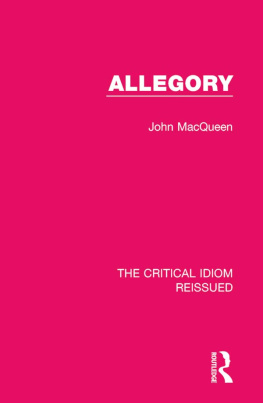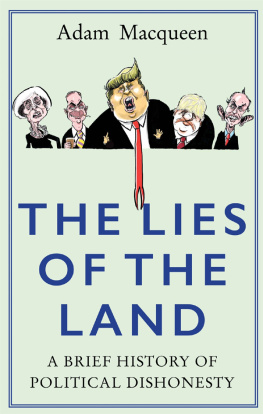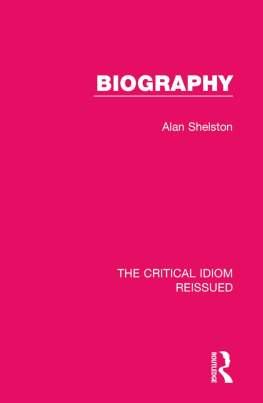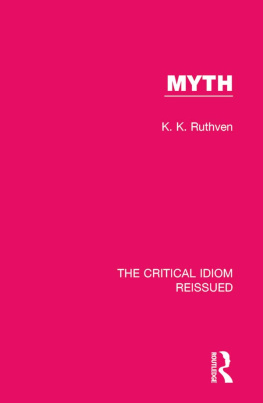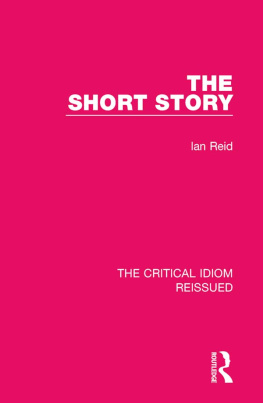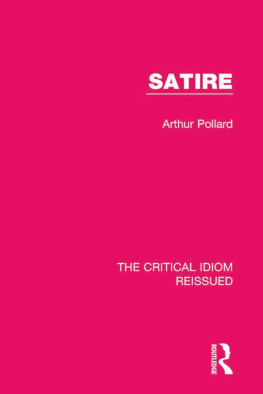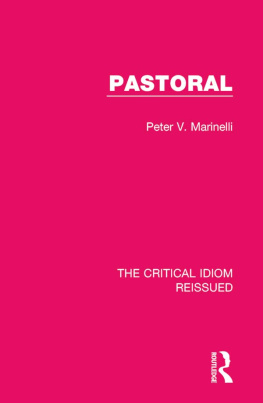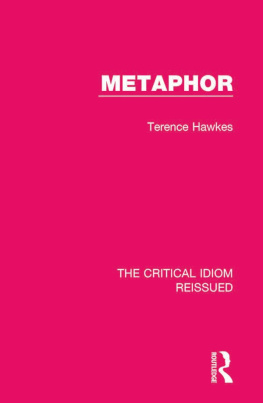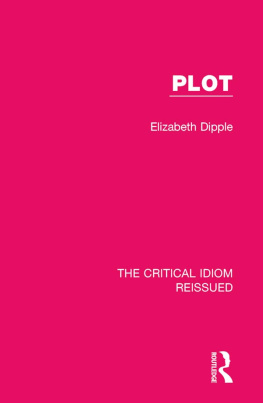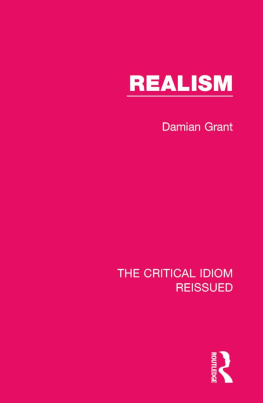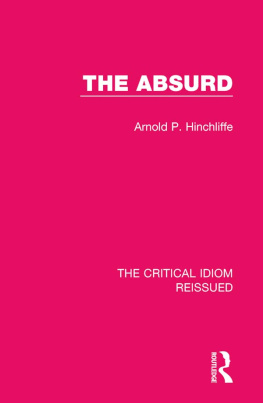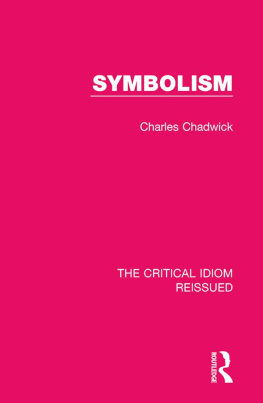Table of Contents
Guide
Print Page Numbers
THE CRITICAL IDIOM REISSUED
Volume 13
ALLEGORY
ALLEGORY
JOHN MACQUEEN
First published in 1970 by Methuen & Co Ltd
This edition first published in 2018
by Routledge
2 Park Square, Milton Park, Abingdon, Oxon OX14 4RN
and by Routledge
711 Third Avenue, New York, NY 10017
Routledge is an imprint of the Taylor & Francis Group, an informa business
1970 John MacQueen
All rights reserved. No part of this book may be reprinted or reproduced or utilised in any form or by any electronic, mechanical, or other means, now known or hereafter invented, including photocopying and recording, or in any information storage or retrieval system, without permission in writing from the publishers.
Trademark notice: Product or corporate names may be trademarks or registered trademarks, and are used only for identification and explanation without intent to infringe.
British Library Cataloguing in Publication Data
A catalogue record for this book is available from the British Library
ISBN: 978-1-138-21971-7 (Set)
ISBN: 978-1-315-26975-7 (Set) (ebk)
ISBN: 978-1-138-28307-7 (Volume 13) (hbk)
ISBN: 978-1-315-27042-5 (Volume 13) (ebk)
Publishers Note
The publisher has gone to great lengths to ensure the quality of this reprint but points out that some imperfections in the original copies may be apparent.
Disclaimer
The publisher has made every effort to trace copyright holders and would welcome correspondence from those they have been unable to trace.
Allegory
John MacQueen
For HECTOR
First published 1970
by Methuen & Co Ltd
11 New Fetter Lane London EC4
1970 John MacQueen
SBN 416 08040 5 Hardback
SBN 416 08050 2 Paperback
This title is available in both hard and paperback editions. The paperback edition is sold subject to the condition that it shall not, by way of trade or otherwise, be lent, re-sold, hired out, or otherwise circulated in any form of binding or cover other than that in which it is published and without a similar condition including this condition being imposed on the subsequent purchaser.
Distributed in the U.S.A.
by Barnes & Noble Inc.
Contents
This volume is one of a series of short studies, each dealing with a single key item, or a group of two or three key items, in our critical vocabulary. The purpose of the series differs from that served by the standard glossaries of literary terms. Many terms are adequately defined for the needs of students by the brief entries in these glossaries, and such terms will not be the subjects of studies in the present series. But there are other terms which cannot be made familiar by means of compact definitions. Students need to grow accustomed to them through simple and straightforward but reasonably full discussions of them. The purpose of this series is to provide such discussions.
Some of the terms in question refer to literary movements (e.g., Romanticism, Aestheticism, etc.), others to literary kinds (e.g., Comedy, Epic, etc.), and still others to stylistic features (e.g., Irony, The Conceit, etc.). Because of this diversity of subject-matter, no attempt has been made to impose a uniform pattern upon the studies. But all authors have tried to provide as full illustrative quotation as possible, to make reference whenever appropriate to more than one literature, and to compose their studies in such a way as to guide readers towards the short bibliographies in which they have made suggestions for further reading.
John D. Jump
University of Manchester
The origins of allegory are philosophic and theological rather than literary. Most of all perhaps they are religious. From the beginning, however, allegory has been closely associated with narrative. All western and many eastern religions have found their most perfect expression in myth a narrative, that is to say, or series of narratives which serves to explain those universal facts which most intimately affect the believer, facts such as times, seasons, crops, tribes, cities, nations, birth, marriage, death, moral laws, the sense of inadequacy and failure and the sense of potential, both of which characterize the greater part of mankind.
Those myths are transmitted, orally at first or in ritual, eventually sometimes by way of the written word. Often they are mysteries, the interpretation of which is revealed only to a priesthood, or to a larger body of initiates whose understanding is to be obtained by way of elaborate, sometimes dangerous or painful, ceremonial. Sometimes too there are degrees of initiation, with full enlightenment reserved for those who reach the highest level. Yet the myth could not have come into being without some interpretation, and it is reasonable to assume that from prehistoric times onwards myth and interpretation went hand in hand. Provided that a sequence of historical events was felt to have a special relevance to a particular society or group of people within a society, a myth might perfectly well have a basis in historical fact. The more extensive the group, the greater the power of the myth.
Examples are not difficult to find. If for instance we restrict ourselves to the classical world of Greece and Rome, the myth of Ceres and Proserpine (in Greek, Demeter and Persephone), which in the seventeenth century still retained its power over the imagination of Shakespeare (Winters Tale IV iv, 11627) and Milton:
Not that fair field
Of Enna, where Proserpin gathring flowrs
Herself a fairer Flowr by gloomy Dis
Was gatherd, which cost Ceres all that pain
To seek her through the world
(Paradise Lost IV, 26872)
began as an allegorical explanation of the process of sowing and harvesting corn. By an almost inevitable extension, it became an allegory of human immortality, or perhaps rather rebirth, after death. In a sense, both Ceres and her daughter Proserpine are the corn. This is more obviously true of Proserpine, but in Latin poetry, for instance, the word Ceres is sometimes used simply to mean corn, as by Virgil in Aeneid I, 1779, when he describes the meal prepared by Aeneass companions after the storm which had so nearly shipwrecked them:
tum Cererem corruptam undis Cerialiaque arma
expediunt fessi rerum, frugesque receptas
et torrere parant flammis et frangere saxo.
(Then, weary of life, they fetch out Ceres, spoiled by the waves, and the arms of Ceres [i.e. the implements for grinding and baking] and prepare to bake the recovered grain and to crush it with a grindstone.)
In Greek likewise the word Demeter is used to mean bread. At this level, Dis or Pluto, the god of the underworld who rapes Proserpine, is the earth in which the seed is buried and germinates. At a different level, however, Dis is death, and Proserpine is the human soul, subject to death, but redeemed by the toils of the mother goddess, Ceres. For a Greek, initiation into the mystery of Demeter at Eleusis near Athens probably involved the revelation of just this level of meaning.

